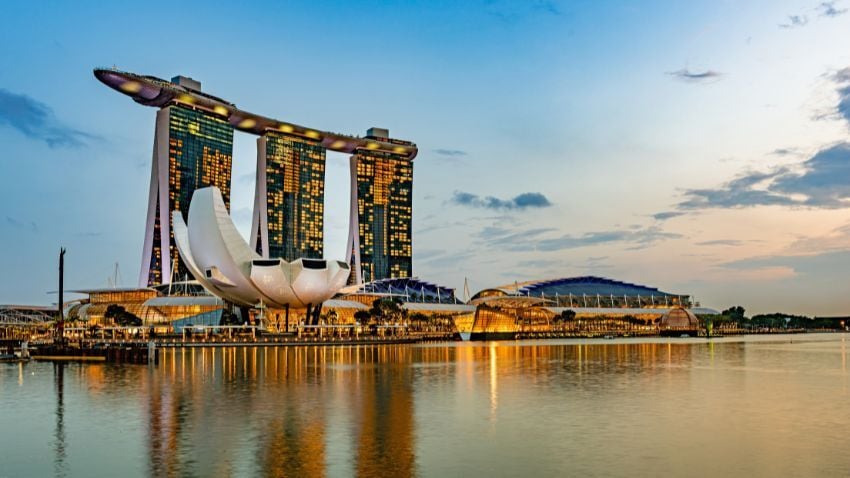How Safe Is Japan?
The word "Japan" brings to mind many things: high-tech, sushi, anime, samurai, and cherry blossoms. It is one of the most intriguing countries in...

4 min read
A few days ago, I wrote an article about the recent EU elections and the rise of the ‘hard-right’—nationalist parties rejecting the woke agenda, illegal immigration, and the lack of safety, among other issues. Regardless of policy details, these political parties represent how sick and tired Europeans are, and countries like France show us why.
France, often held in high regard by tourists and visitors, is not what it seems. Both businesses and workers face rising crime, high taxation, and suffocating living costs. Law-abiding citizens face the consequences of mismanagement, and all they want to do is provide for their families and live in safe neighbourhoods. Well, it looks like asking for this is too much for the French government.
To make matters worse, a communist candidate and possibly the new president of France, Jean-Luc Mélenchon, wants to impose a 90% tax on income exceeding €400,000 ($435,965 USD). The old adage remains the same: it’s for the sake of the poor and providing better public services. A likely story, of course…
In today’s article, we’ll check Mélenchon’s proposals, how they may impact France and most importantly, why now is the moment for you to start working on your Plan-B before money-thirsty politicians take the fruits of your labour away from you.

France struggles with rising crime, high taxes, and living costs, and a proposed 90% tax on high incomes by Jean-Luc Mélenchon adds to citizens' burdens
This 90% income tax is confiscatory and counterproductive, but let’s examine France’s situation a bit better. Instead of incentivizing wealth creation, saving and investing, the French government has been taxing its citizens for decades. Despite its high taxes (among the highest in Europe and the world), the country hasn’t had any budget surpluses in recent years, showcasing once again that higher taxation does not correlate with higher government revenue (see Laffer’s curve). As Hayek wisely said, “If socialists understood economics, they wouldn't be socialists.”
The problem with France is not just Mélenchon’s potential rise to power; the root issue here is the pervasive statism. Regardless of who’s in power, the French public administration eats into more than half of the country’s wealth. To illustrate the tax burden the French deal with, consider the 20% VAT rate, a top income tax of 45%, social security contributions of up to 23% of the worker’s salary and even a 3% tax on certain companies providing digital services. Even with all these taxes, the state can’t guarantee that streets are safe or that you will be promptly served in the public healthcare system. Taxes are not, by any means, the guarantor of a civilized society. Taxation is theft.
Therefore, Mélenchon would not be a beacon of change at all; he would rather perpetuate the status quo, extracting more wealth from business and the workers he supposedly defends. We all know that socialists always claim they protect working-class people, but with their economic policies, they just repel foreign investment and make businesses set up shop elsewhere. And guess who pays for the monstrous public spending? You’re right: all of us.
Still, the alternatives are not as encouraging since, to a certain extent, they want to preserve the status quo—at least on the economic front. The right-wing nationalist candidate Jordan Bardella (Rassemblement National, RN) offers some tax cuts here and there but without reducing public spending. Their program also gravitates around other key issues like granting better purchasing power, stopping mass immigration and guaranteeing safety on the streets, but it seems that voters prefer something else—namely socialism.
Therefore, Mélenchon’s 90% tax will make high earners reconsider their tax residency in France if it comes to fruition. It is not an exaggeration to say that France is a socialist country. Taxation is extremely burdensome, but the public administration cannot even provide the services French taxpayers are coercively funding. Basically, they are paying for services they are not even getting.
As mentioned above, France’s public expenditures are among the highest in the world, accounting for around 57% of the country’s GDP. Therefore, more than half of the country’s economic output is controlled by the state. The government’s involvement in various sectors, from healthcare to transportation, significantly impacts the national budget and taxpayers.
For decades, France has been grappling with persistent budget deficits, failing to balance its books even during periods of economic growth. The country’s public debt has been on an upward trajectory, exacerbated by continuous borrowing to cover these deficits. As of recent reports, France’s public debt has soared to levels that economists and financial experts find alarming. This relentless increase in debt highlights the unsustainable nature of the country's fiscal policies.
Historically, every French administration has struggled to implement effective measures to curb public spending. The fiscal imprudence can be traced back to policies initiated during the post-war era, which established a robust ‘welfare state.’ While these policies were aimed at ensuring social security and public welfare, they have led to an overextended and inefficient public sector.
The problem with socialists goes way beyond how hurtful their policies are; in particular, their moral superiority is sickening. They are never happy with how much money the government extracts from taxpayers. If revenue goals are not reached, they just want to increase taxes to generate more, which turns their economic policy into a vicious cycle of tax rises and lower revenue.
Among other consequences, excessive public spending doesn’t allow taxpayers to save as much, thus making them think twice before investing or starting a business. Then, while some work their tails off, others benefit from subsidies, disincentivizing wealth creation. To add insult to injury, the monstrous public administration, which is far from facilitating legal procedures, is inefficient and only creates problems to present itself as the solution. This is what socialism is all about.

France's decline reflects the West's issues with high taxes and poor services, but better options exist globally, making a Plan-B crucial for high-tax residents
Whether you live in France or not, this country is only an instance showcasing the degradation of the West, which many still call the most prosperous and freest civilization in the world. How on Earth can someone consider a society prosperous and free when the state extracts more than half of every taxpayer’s wealth but does not provide the services they are supposedly funding? At this point in history, I don’t think there’s any going back. However, there’s good news…
The world remains a huge place, and many countries are way better on all fronts, whether you think of taxation, business-friendliness or even safety. If you live in a high-tax jurisdiction and see the fall of legacy countries, it’s time for a Plan-B.
If you want the best intel from the expat world, including profitable offshore opportunities, little-known tax-saving strategies, and hard-won insights on immigration, passports, and Plan-B residencies, all delivered to your inbox every single week, then join our daily correspondence, EMS Pulse®. Currently enjoyed by over 84,000 expats and expat-hopefuls worldwide. Fill in the form below to join our newsletter free:

Written by Mikkel Thorup
Mikkel Thorup is the world’s most sought-after expat consultant. He focuses on helping high-net-worth private clients to legally mitigate tax liabilities, obtain a second residency and citizenship, and assemble a portfolio of foreign investments including international real estate, timber plantations, agricultural land and other hard-money tangible assets. Mikkel is the Founder and CEO at Expat Money®, a private consulting firm started in 2017. He hosts the popular weekly podcast, the Expat Money Show, and wrote the definitive #1-Best Selling book Expat Secrets - How To Pay Zero Taxes, Live Overseas And Make Giant Piles Of Money, and his second book: Expats Guide On Moving To Mexico.

The word "Japan" brings to mind many things: high-tech, sushi, anime, samurai, and cherry blossoms. It is one of the most intriguing countries in...

Singapore is often described as a city that works, and it totally deserves its reputation. This small island nation in Southeast Asia has built one...

Panama’s geographic size is modest, but its global relevance is not. The country connects two oceans and two continents, operates on a dollarized...